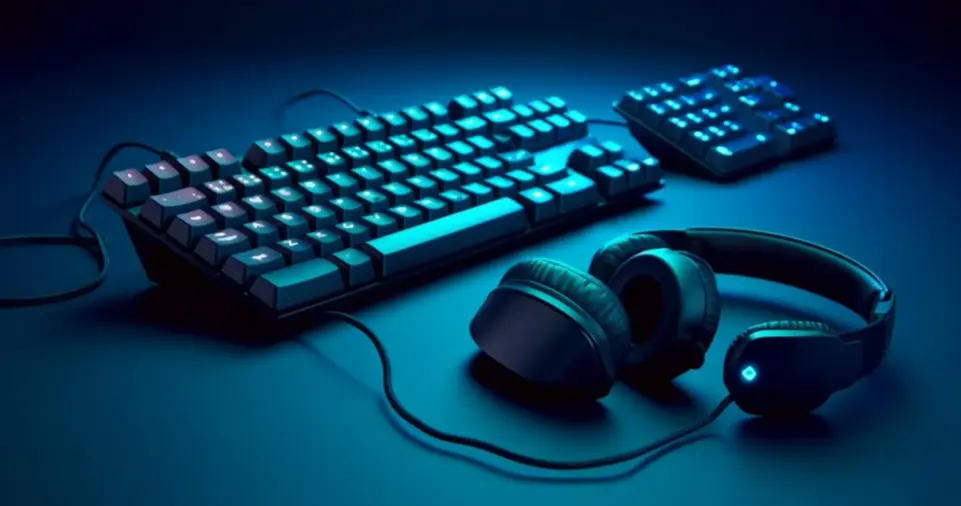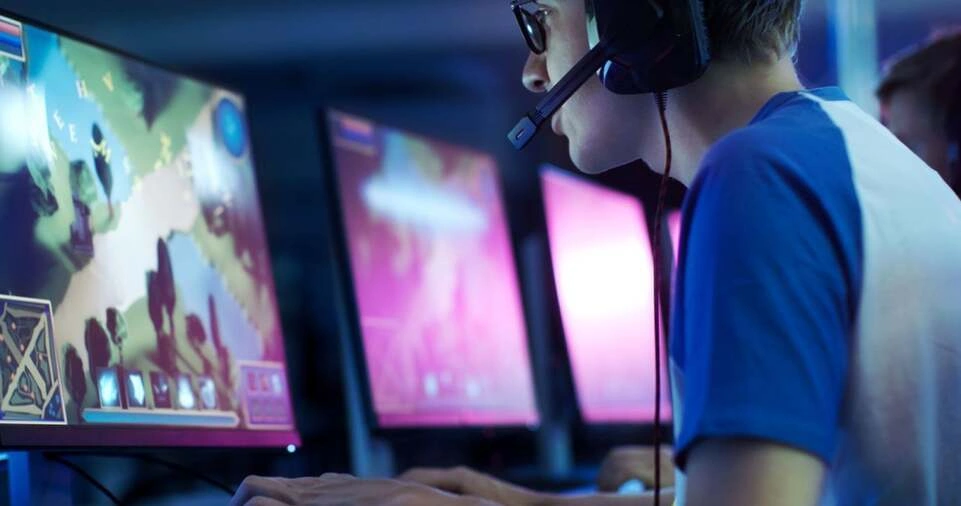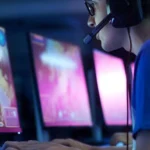How to Start a Career as a Professional Gamer: The world of professional gaming has evolved from a niche hobby into a multi-billion-dollar industry.
With the rise of esports tournaments, live streaming platforms, and sponsorship deals, becoming a professional gamer is more feasible than ever.
However, breaking into this industry requires more than just playing video games for fun.
It demands skill, strategy, discipline, and a deep understanding of the competitive gaming landscape.
Many aspiring gamers dream of making it big, but few realize the level of commitment required to succeed.
Unlike casual gaming, professional gaming is highly competitive, with thousands of players vying for limited spots in top-tier teams and tournaments.
From mastering game mechanics to networking with the right people, every step in your journey must be carefully planned.
This comprehensive guide will walk you through every stage of becoming a professional gamer, ensuring you have the knowledge and tools necessary to turn your passion into a profitable career.
Choosing the Right Game
Understanding the Competitive Gaming Scene
Selecting the right game is the first and most crucial step in becoming a professional gamer. Not all games have a competitive scene, and some are far more lucrative than others.
Games with a strong esports presence often have high prize pools, sponsorship opportunities, and structured leagues.
Some of the most popular esports titles include:
- First-Person Shooters (FPS): Counter-Strike: Global Offensive (CS:GO), Valorant, Call of Duty
- Battle Royale Games: Fortnite, PUBG, Apex Legends
- MOBA (Multiplayer Online Battle Arena): League of Legends, Dota 2
- Fighting Games: Street Fighter, Mortal Kombat, Super Smash Bros.
- Sports & Racing Games: FIFA, NBA 2K, Gran Turismo
Choosing a game should be based on your passion and skill level.
Playing a game just because it has a large esports scene may not be sustainable if you don’t enjoy it.
Consider testing different games to find the one that aligns with your strengths and interests.
Understanding Game Longevity
Some games remain competitive for years, while others lose popularity quickly.
Research how long a game has been in the competitive scene and whether it continues to receive support from developers.
Established games like CS:GO and League of Legends have consistent tournaments and prize pools, making them safer choices.
Single vs. Team-Based Games
Deciding between single-player and team-based games is another factor to consider.
Single-player esports (such as fighting games) allow you to control your progress, while team-based games require collaboration.
If you excel in teamwork and communication, games like Valorant or Dota 2 may be a better fit.
If you prefer to rely solely on your skills, consider games like Street Fighter or Hearthstone.
Mastering the Game Mechanics

Developing Core Skills
Becoming a professional gamer requires mastering the fundamental mechanics of your chosen game.
These include:
Reflexes and Reaction Time:
Competitive games require split-second decision-making. Enhancing your reaction speed gives you an edge over opponents.
Game Sense and Strategy:
Understanding map layouts, opponent behavior, and strategy execution is essential in high-level play.
Aim and Precision:
In FPS games, aim accuracy can determine victory or defeat. Using aim trainers or specialized drills can improve precision.
Multitasking and Quick Thinking:
Many games require managing multiple tasks simultaneously, such as building and shooting in Fortnite.
Learning from Professionals
One of the best ways to improve is by studying professional players.
Watching esports tournaments, analyzing top players’ strategies, and learning from their gameplay can provide invaluable insights.
Platforms like Twitch and YouTube have countless hours of professional gameplay, tutorials, and breakdowns that can help you refine your skills.
Practicing Effectively
Practice is essential, but how you practice matters more than how much you practice.
Here are some effective strategies:
Set Daily Goals:
Focus on improving specific aspects of your game, such as aim, movement, or decision-making.
Analyze Your Gameplay:
Recording and reviewing your matches helps identify weaknesses and areas for improvement.
Compete Against Stronger Opponents:
Playing against high-level players forces you to adapt and improve quickly.
Join Online Communities:
Engaging with fellow players through forums and Discord servers can help you stay updated on the latest strategies and meta changes.
Investing in the Right Gaming Equipment

Building a Professional Gaming Setup
Your gaming setup plays a significant role in your performance.
High-quality equipment can provide a competitive advantage by ensuring smooth gameplay and better control.
Essential gaming equipment includes:
Gaming PC or Console:
A high-performance PC with a powerful GPU and fast refresh rate monitor is crucial for competitive gaming. Console players should invest in the latest versions of their preferred system.
Gaming Mouse and Keyboard:
Mechanical keyboards and high-DPI mice offer precision and responsiveness.
High-Quality Headset: Sound plays a critical role in games, especially FPS titles where audio cues provide crucial information.
Stable Internet Connection:
A wired Ethernet connection minimizes lag and improves reaction times.
Optimizing Your Setup
In addition to having the right gear, optimizing your setup ensures maximum efficiency:
Adjust Graphics Settings:
Lowering unnecessary visual effects can improve FPS and responsiveness.
Use a Comfortable Gaming Chair:
Sitting for long hours can cause strain; investing in an ergonomic chair helps maintain good posture.
Proper Desk Arrangement:
A well-organized gaming space reduces distractions and enhances focus.
Creating a Practice Routine
Balancing Practice and Rest
Many aspiring gamers believe playing for long hours is the key to improvement.
While practice is important, overworking yourself can lead to burnout.
A structured routine balances practice with breaks and recovery time.
A sample practice routine may look like this:
- Warm-up (30 minutes): Use aim trainers, reflex tests, or casual matches.
- Skill Improvement (2-3 hours): Focus on specific mechanics such as aiming, movement, or strategy execution.
- Ranked Matches (3-4 hours): Apply your skills in real competitive games.
- Analysis and Review (1 hour): Watch replays, identify mistakes, and plan improvements.
- Breaks and Exercise: Taking short breaks prevents fatigue and enhances focus.
Mental and Physical Conditioning
Professional gaming is both mentally and physically demanding.
Staying healthy is essential to maintaining peak performance:
- Stay Hydrated: Dehydration can affect focus and reaction time.
- Exercise Regularly: Simple activities like stretching and walking prevent stiffness and improve blood circulation.
- Get Enough Sleep: Proper rest enhances cognitive function and reaction speed.
- Manage Stress: Meditation and breathing exercises help maintain composure in high-pressure situations.
Competing in Tournaments and Finding a Team
Starting with Amateur Tournaments
Before reaching professional-level tournaments, it’s important to gain experience in amateur competitions.
Websites like Faceit, ESL, and GameBattles offer regular online tournaments where players can test their skills.
Joining an Esports Team
Many professional gamers start by joining small teams before getting recruited by major organizations.
Benefits of joining a team include:
- Structured Training Sessions
- Access to Coaching and Mentorship
- Opportunities to Compete in Higher-Level Tournaments
Building a Reputation
Consistency, networking, and performance in tournaments will get you noticed.
Engaging in social media, streaming, and actively participating in gaming communities can help establish your presence in the esports industry.
ALSO READ: How to Design Custom Icons for Your Website
Conclusion
Becoming a professional gamer is a challenging yet rewarding pursuit that demands dedication, skill, and strategic planning.
It’s not just about playing games—it’s about mastering the mechanics, investing in the right equipment, and developing a routine that balances practice with mental and physical health.
By starting with the right game, honing your skills, participating in amateur tournaments, and building a strong network, you can create a foundation for a successful career in esports.
The journey to becoming a professional gamer requires continuous learning, adaptability, and perseverance.
With the right mindset, resources, and commitment, you can turn your passion for gaming into a profitable career, enjoying both personal growth and the opportunity to thrive in one of the most exciting industries today.






